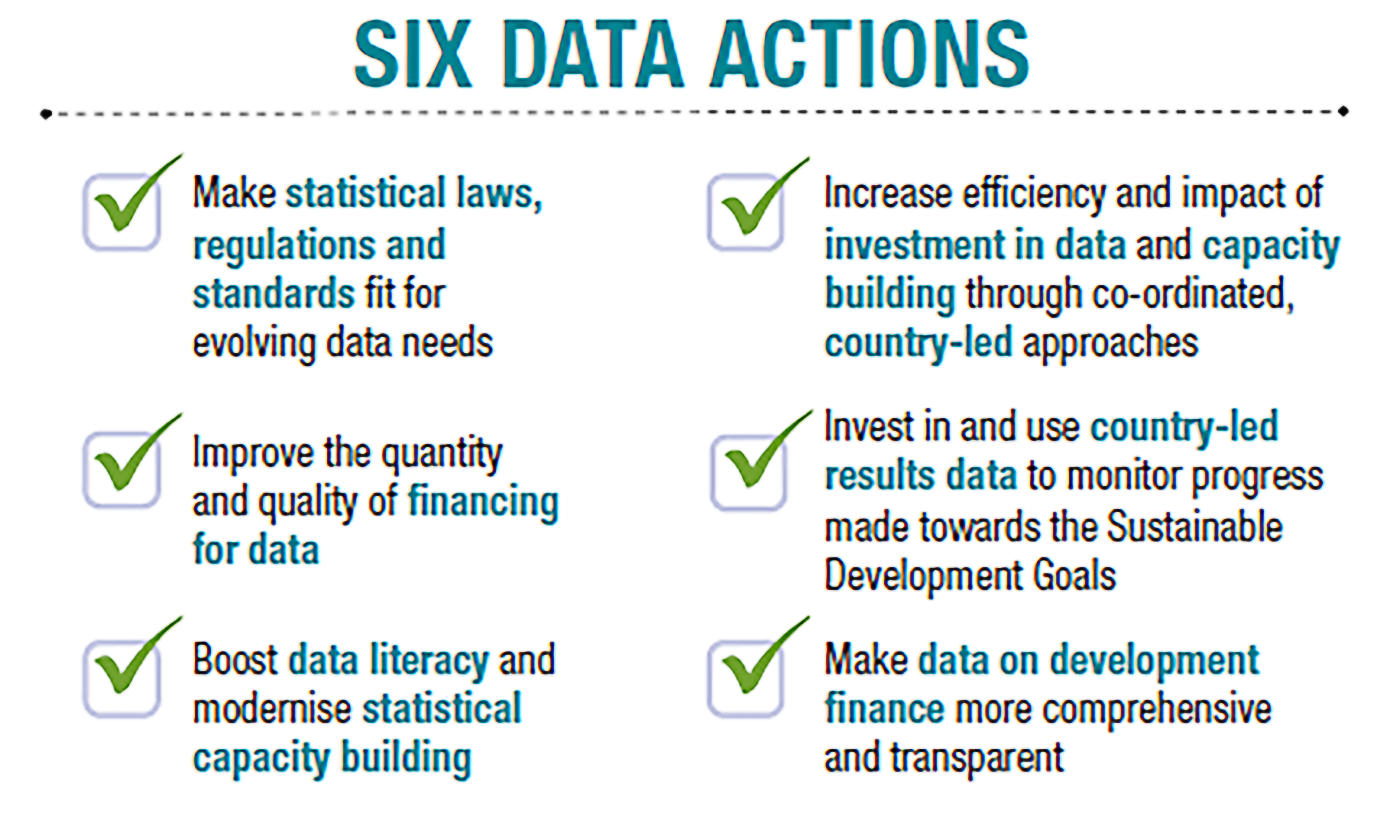The Organisation for Economic Co-operation and Development’s (OECD) recent Development Co-operation Report 2017 takes as its theme ‘Data for Development’. It describes the data landscape we should be aiming to operate in to help achieve the SDGs. But it does not set out a path to get us there. ODI’s new project Voices of the Poor, 2.0 may just help bridge the gap between where we are and where we need to be.
A comprehensive assessment
The OECD report presents a comprehensive assessment of what an ideal data ecosystem looks like and how its different elements (laws, systems, instruments, capacity, financing) should look. Their analysis leads to a six-pronged action plan for harnessing the power of data.
As part of its analysis, the OECD report highlights the need for ‘quality, timely and disaggregated data’. It identifies the strategic and methodological challenges faced by those aiming for a virtuous cycle of data generation, dissemination, and use. It also cautions that a failure to create a robust data ecosystem threatens the delivery of Agenda 2030.
We have known about these challenges for a while. In 2014, Ana Revenga, now the Deputy Chief Economist at the World Bank, wrote that we need 'data, good data and lots of it'. In 2011, Claire Melamed lamented the lack of reliable and comparable data – despite years of government effort and international support. In 2015, ODI’s report The data revolution: Finding the missing millions highlighted that as many as ‘350 million people worldwide are not covered by household surveys’. Worryingly, that is ‘particularly true for the poorest and most marginalised, the very people that leaders will need to focus on’ to achieve the SDGs.
It has been nearly 20 years since the World Bank undertook a global survey of the poor – the original Voices of the Poor exercise – to understand the different manifestations of poverty. In the current SDG era, development strategies and priorities being devised are flying on auto-pilot – reflecting data that is outdated and fragmented at best, and missing at worst – and existing dials in the cockpit are inadequate to navigate to our new and more challenging destinations. ODI is planning to launch ‘Voices of the Poor, 2.0’ – a new household survey-based listening exercise that fills this vital data gap. Our modules will enable national statistical organisations (NSOs) to generate critical supplementary data to update and refine our understanding of the specific needs of the poor and the most marginalised. It will enable policy-makers to design and implement policies and programmes that target and prioritise and most pressing development needs of the neediest segments of the society, and monitor their impact over time. This, we expect, will be a pathway for governments to make incremental progress towards their SDG commitment to leave no one behind and gradually build the virtuous cycle of systems and results needed to establish the data ecosystem utopia that OECD’s report envisions.
Voices of the poor: making incremental gains
The project will provide new quantitative household survey modules that will periodically and routinely record and measure the needs, aspirations and development priorities of the poor.
We will develop and pilot survey modules for select goals (health, education, children’s welfare, employment) in certain developing countries. But what is unique about this project is that we will focus specifically on the poor and chronically underserved segments of the population.
Our aim is to systematically reveal household perceptions and policy preferences. This will improve policy-makers’ ability to provide optimally targeted and prioritised programmes and policies, resulting in more efficient and effective development outcomes. We also aim to help citizens’ groups and civil society better monitor progress in achieving the SDGs. We anticipate that poorer people will genuinely feel more empowered if they see initiatives becoming more responsive to their needs.
There are considerable conceptual, methodological and financial challenges ahead. To begin addressing them, we convened a technical advisory group of academics, experts, and statistical agencies. Together, we will sharpen our survey module contents, its instruments and processes – such as, who to ask, what exactly to ask, how and how often to ask. We will also seek funding sources, and identify where to develop and implement the trial and testing phase of the project.
The modules will be designed to append to existing routine NSO surveys rather than create whole new surveys. We aim to not unduly burden their already stretched capacities. And we will develop our methodology together with interested developing country governments – building it around their needs and preferences, while maintaining its adaptability to other country contexts.
It won’t be easy, but we hope to make a meaningful, sustainable and incremental contribution towards creating the virtuous data cycle that OECD and many others are yearning for.

